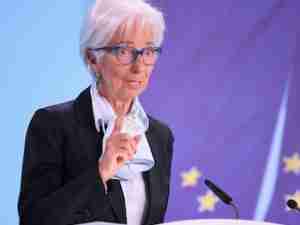Last summer, several shipments of soy from the United States were blocked from entering Europe after authorities detected traces of unauthorised GM maize in the consignments, sparking fears of a feed shortage.
That led industry groups to warn that Europe's food and livestock feed chain could lose 3.5 to 5 billion euros ($4.66bn to $6.66bn) in just six months, which would force EU livestock farmers out of business and meat production overseas.
But in a report sent to EU politicians, Friends of the Earth (FoE) said the scale of the problem had been deliberately exaggerated by feed importers and biotech companies who want a change in the European Union's zero tolerance policy -- a charge denied by industry members.
Citing official EU data on confirmed contamination cases, FoE said a maximum of 66,000 tonnes of soybean and meal imports were rejected in 2009, equivalent to 0.2 percent of the 32 million tonnes of soy imported into Europe last year.
About 70 percent of the contamination cases originated from the United States, which accounts for 15.8 percent of soybean imports and 2.3 percent of soymeal imports to Europe, the report said. There were no incidents of GM contamination in shipments from Argentina and Brazil, the two largest soy exporters to Europe, the report added.
The European Commission ended last year's supply disruptions by approving the GM maize varieties that had caused the problems, but in March it announced plans to propose a more lasting "technical solution" by the end of this year.
The Commission is expected to propose a tolerance margin of between 0.1 and 0.5 percent on unapproved GMOs in feed and possibly food imports.
"The quantities of contaminated animal feed were so low that it cannot be argued that the EU's zero tolerance policy caused significant disruption," the report said.
"Europe's laws on genetically modified foods are there for a reason - to protect the public and the environment. Our research shows that industry is trying to scare-monger politicians to change the law," added FoE agriculture campaigner Adrian Bebb.
Legal Uncertainty
But industries affected by the contamination cases said the EU data used by FoE hid the full scale of the crisis.
"What's reported to the EU rapid alert system is only the result of official tests. The Spanish authorities said at the time that shipments of more than 200,000 tonnes were blocked by Spain alone," said Alex Doering of EU feed manufacturers' association Fefac. "Friends of the Earth are simply ignoring the actual impact on feed prices due to legal uncertainty, which is still there, and is something the market does assess when buying futures contracts to cover supplies in 6 to 9 months time," he added.
While the huge economic losses predicted by some failed to materialise, the prospect was very real and hasn't gone away, Nathalie Lecocq of EU oil and protein meal association Fediol.
"We're talking about commodities trade, and even with the best efforts, 'zero' is something that's impossible to ensure, especially with growing GM production across the world," she said.
"Traces of unapproved GM can be found in any product, and all supply chains face the risk of future disruption," she added. (Reuters)




